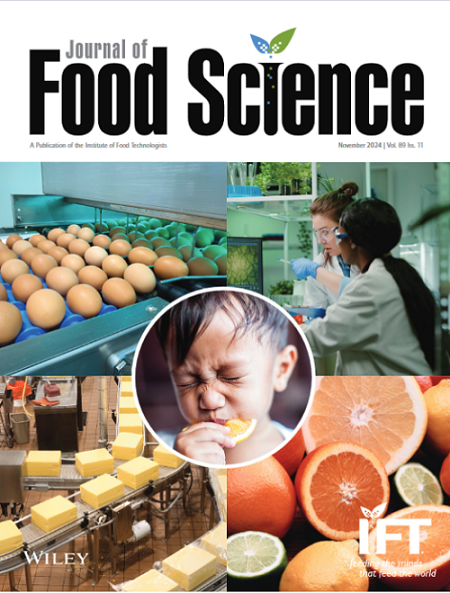Insights Into the Role of Leuconostoc Mesenteroides SB1075 Fermentation in Enhancing the Shelf-Life of Soy Yogurt
Abstract
ABSTRACT
Fermented foods with extended shelf life, free from synthetic preservatives, offer significant commercial and health advantages. With increasing consumer demand for plant-based alternatives, soy yogurt has gained substantial market interest. However, improving its shelf-life at ambient temperature without compromising quality remains challenging. This study investigates the application of Leuconostoc mesenteroides SB1075, a promising probiotic strain isolated from yellow-cultivar soybean seeds of Manipur (India), as a biopreservative starter culture for soy yogurt fermentation. Unlike conventional dairy-origin lactic acid bacteria, L. mesenteroides SB1075 demonstrated superior adaptability to soy fermentation. The resulting soy yogurt exhibited an impressive shelf-life of 40 days at room temperature (25°C), significantly outperforming the control (spontaneous fermentation without starter, <5 days) while maintaining its organoleptic and nutritional qualities. Sensory evaluation with a hedonic scale of 10 indicated that flavor, aroma, and taste consistently received a score >6, while color, firmness, consistency, syneresis, and overall acceptance were rated >7. Microscopic analysis, including atomic force and scanning electron microscopy, revealed that the flocculation behavior of L. mesenteroides SB1075 effectively inhibited spoilage microbes, thereby extending product stability. Genomic analysis highlighted its heterofermentative and biopreservative potential, while time-course metabolomics identified bioactive compounds, such as monobactam, organic acids, and neomycin, from the 5th day of storage.
This study provides key insights into biopreservation strategies for plant-based fermented foods, offering a valuable alternative to chemical preservatives. The findings support the commercial development of naturally preserved soy yogurt, enhancing the sustainability and market expansion of plant-based dairy alternatives.
Practical Application
Our research addresses a critical need in the food industry: prolonging the shelf life of soy yogurt without relying on preservatives, which is achieved using a plant-derived probiotic bacterium L. mesenteroides SB1075. The findings outlined in this manuscript propose an innovative and sustainable approach to improving the quality and shelf life of soy yogurt, meeting the increasing demand for vegan, healthier, and preservative-free food choices.

 求助内容:
求助内容: 应助结果提醒方式:
应助结果提醒方式:


